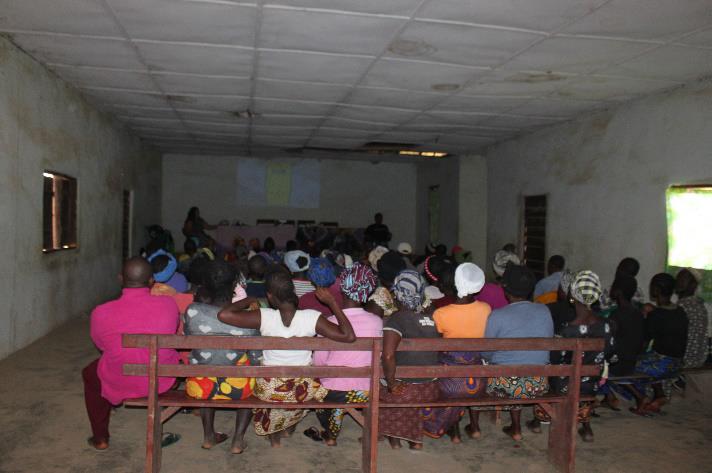Experimental Training Hub helps Njala University fight postharvest loss


By Paul McNamara, Professor, University of Illinois
Two years of funding from ADMI has helped the University of Illinois at Urbana-Champaign (UIUC) and Njala University co-create a Postharvest Loss Experimental Training Hub to train students and faculty, serve farmers, and link farmers to private sector partners in Sierra Leone. Building on a long-standing partnership between UIUC and Njala University, the goal of the PHL Experimental Training Hub is to educate the next generation of men and women on postharvest loss reduction by promoting appropriate-scale PHL technology adoption for sustainable intensification, with a focus on smallholder farmers.
Work on the Training Hub started in 2019, when I worked with colleagues at Njala University to develop a plan for the hub. We envisioned a center that would allow students and faculty a space to build, test, and adapt new and existing postharvest technologies to understand how they perform in the context of smallholder farming systems in Sierra Leone. This would provide not only practical experience to prepare students for the workforce, a critical element that is often lacking in the Sierra Leone university curriculum, but also serve as a space for local farmers to learn, give practical feedback to researchers, and voice their own questions and concerns about postharvest loss. The private sector was also envisioned as a critical stakeholder, and the hub was seen as a platform to link the private sector actors with farmers and academics.
ADMI funding helped UIUC provide dryers, moisture meters, and hermetic bags for the hub. During study abroad trips to Sierra Leone in 2020 and 2021, students and faculty from UIUC and Njala University worked together to investigate the cultural, social, and economic factors that affect local stakeholders and their preferences for and use of postharvest practices and technologies. Students interacted with several hundred farmers using local-language videos and demonstrations to explore appropriate extension methods to reach smallholder farmers in the context of rural Sierra Leone.
A second year of funding helped expand the PHL hub’s activities. A learning event at Njala University in March 2021 brought together staff members from local NGOs, the Ministry of Agriculture, private sector providers, students, faculty, and farmers. Several different types of grain dryers were built before and during the event and tested by the participants.
Five animated postharvest videos created by SAWBO have been translated in Krio (a popular local language) and used to train farmers on topics such as how to build and use a solar grain dryer and how to hermetically store dried grains and legumes. The PHL Experimental Hub will continue to be a source of information and support to farmers in Sierra Leone and offer practical learning opportunities for students.
Click here to read more about the Postharvest Training Hub project


Add Comment